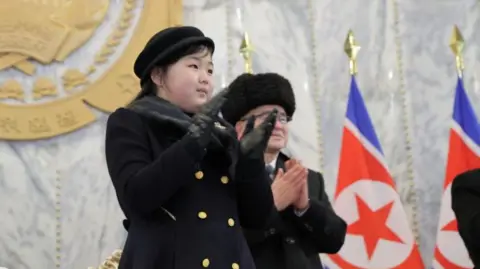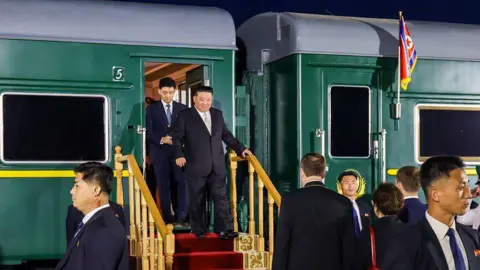In the past week, the Wonsan Kalma resort, a project overseen by North Korean leader Kim Jong Un, opened its doors to its first visitors from Russia. The timing of this opening follows reports by human rights groups regarding the alleged exploitation of workers involved in the resort's construction, with specific focus on the so-called "shock brigades". Critics have highlighted the enormous pressures faced by these workers to complete the project under demanding circumstances, prompting serious ethical inquiries.
The resort, which draws inspiration from the Spanish tourist destination Benidorm, aims to attract a considerable influx of international visitors, with aspirations to host over a million tourists, particularly from neighboring China and Russia. Kim Jong Un's personal connections to Wonsan, where he spent much of his youth, guided the planning and eventual establishment of this resort as a potential "world-class" tourist attraction.
However, independent research has revealed that many local residents were displaced without adequate compensation as a result of the resort's development, while reports indicate that the regime employs forced labor tactics. A defected North Korean worker has described harrowing working conditions and underscored the limited recourse for those who fall victim to the harsh demands of labor.
Despite these challenges, the Russian travel market for North Korean tourism appears to have gained initial traction with a few tour operators advertising packages that include stays at the Wonsan site. Nevertheless, experts caution that the appeal of North Korea may be limited compared to more established tourist destinations, raising questions about the longevity and viability of this tourism push.
The information presented in this article reflects multiple angles on the situation within North Korea, emphasizing human rights repercussions alongside the country's efforts to bolster international tourism relations.
The resort, which draws inspiration from the Spanish tourist destination Benidorm, aims to attract a considerable influx of international visitors, with aspirations to host over a million tourists, particularly from neighboring China and Russia. Kim Jong Un's personal connections to Wonsan, where he spent much of his youth, guided the planning and eventual establishment of this resort as a potential "world-class" tourist attraction.
However, independent research has revealed that many local residents were displaced without adequate compensation as a result of the resort's development, while reports indicate that the regime employs forced labor tactics. A defected North Korean worker has described harrowing working conditions and underscored the limited recourse for those who fall victim to the harsh demands of labor.
Despite these challenges, the Russian travel market for North Korean tourism appears to have gained initial traction with a few tour operators advertising packages that include stays at the Wonsan site. Nevertheless, experts caution that the appeal of North Korea may be limited compared to more established tourist destinations, raising questions about the longevity and viability of this tourism push.
The information presented in this article reflects multiple angles on the situation within North Korea, emphasizing human rights repercussions alongside the country's efforts to bolster international tourism relations.


















